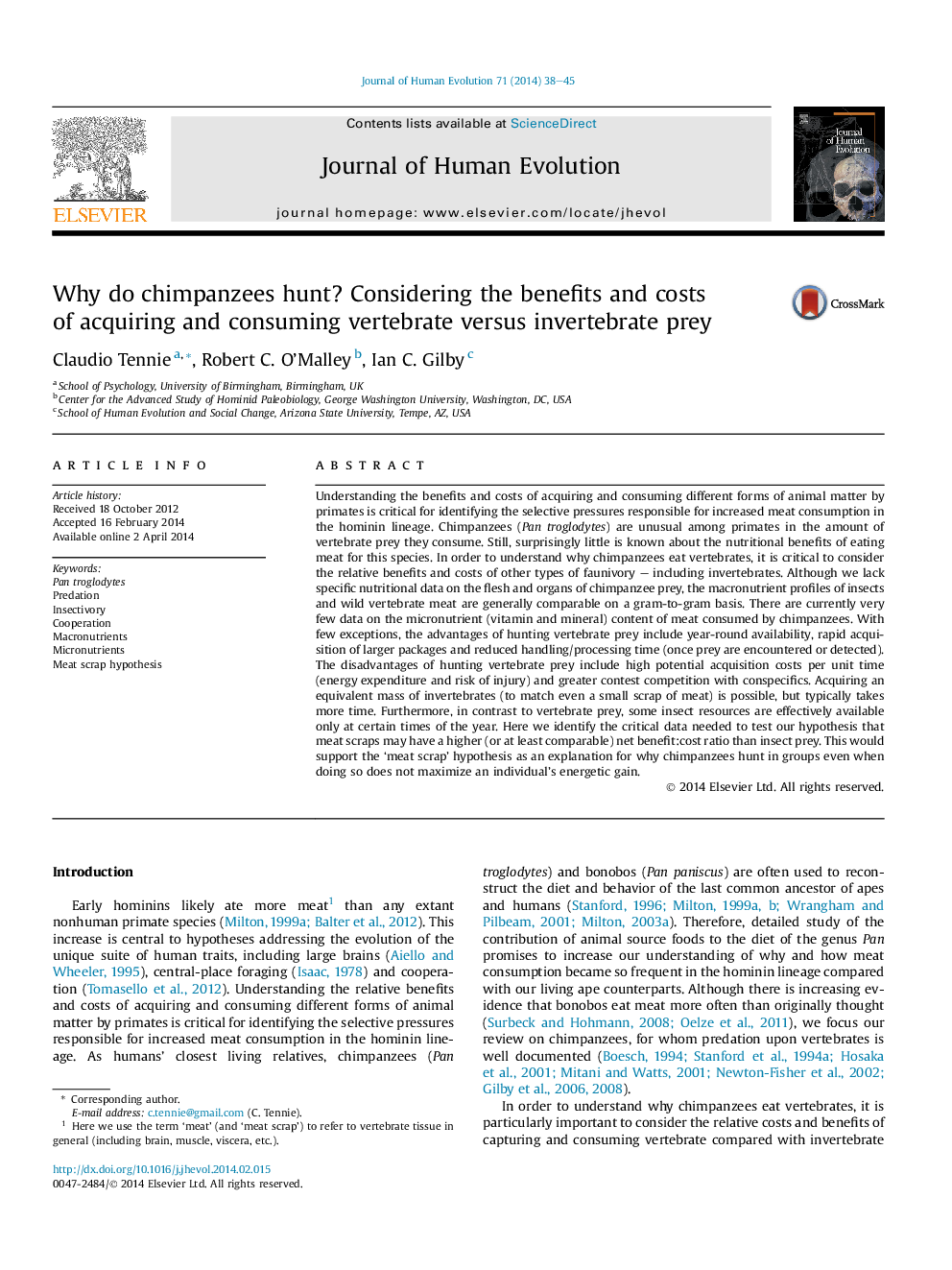| کد مقاله | کد نشریه | سال انتشار | مقاله انگلیسی | نسخه تمام متن |
|---|---|---|---|---|
| 4556049 | 1628178 | 2014 | 8 صفحه PDF | دانلود رایگان |
Understanding the benefits and costs of acquiring and consuming different forms of animal matter by primates is critical for identifying the selective pressures responsible for increased meat consumption in the hominin lineage. Chimpanzees (Pan troglodytes) are unusual among primates in the amount of vertebrate prey they consume. Still, surprisingly little is known about the nutritional benefits of eating meat for this species. In order to understand why chimpanzees eat vertebrates, it is critical to consider the relative benefits and costs of other types of faunivory – including invertebrates. Although we lack specific nutritional data on the flesh and organs of chimpanzee prey, the macronutrient profiles of insects and wild vertebrate meat are generally comparable on a gram-to-gram basis. There are currently very few data on the micronutrient (vitamin and mineral) content of meat consumed by chimpanzees. With few exceptions, the advantages of hunting vertebrate prey include year-round availability, rapid acquisition of larger packages and reduced handling/processing time (once prey are encountered or detected). The disadvantages of hunting vertebrate prey include high potential acquisition costs per unit time (energy expenditure and risk of injury) and greater contest competition with conspecifics. Acquiring an equivalent mass of invertebrates (to match even a small scrap of meat) is possible, but typically takes more time. Furthermore, in contrast to vertebrate prey, some insect resources are effectively available only at certain times of the year. Here we identify the critical data needed to test our hypothesis that meat scraps may have a higher (or at least comparable) net benefit:cost ratio than insect prey. This would support the ‘meat scrap’ hypothesis as an explanation for why chimpanzees hunt in groups even when doing so does not maximize an individual's energetic gain.
Journal: Journal of Human Evolution - Volume 71, June 2014, Pages 38–45
